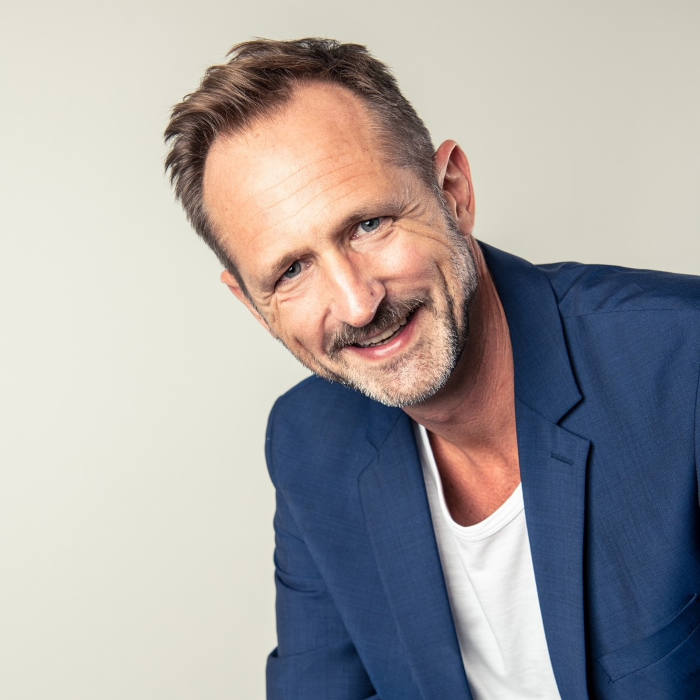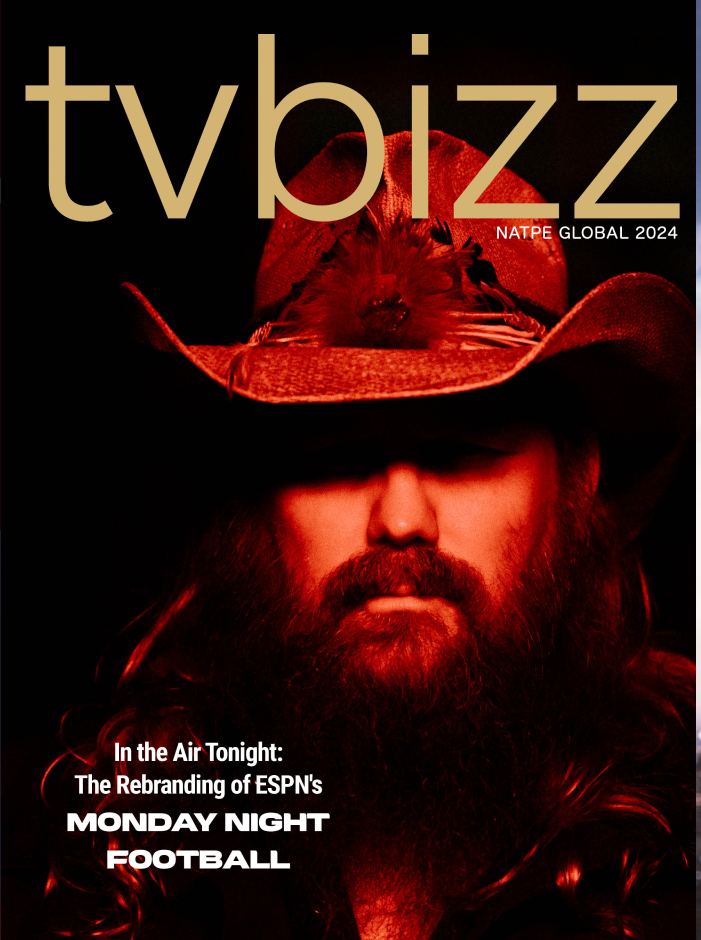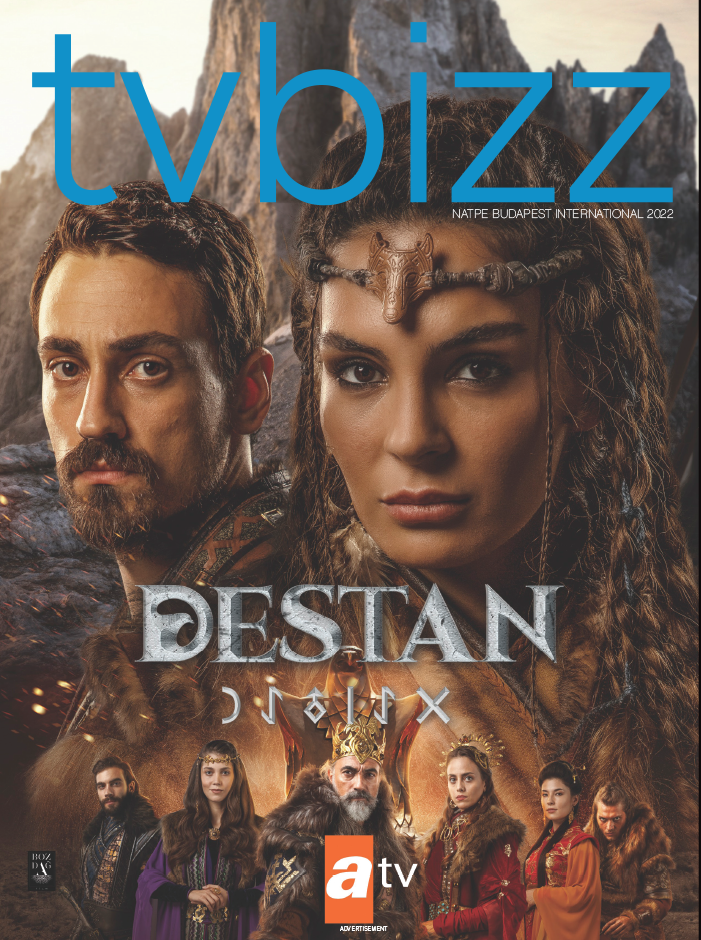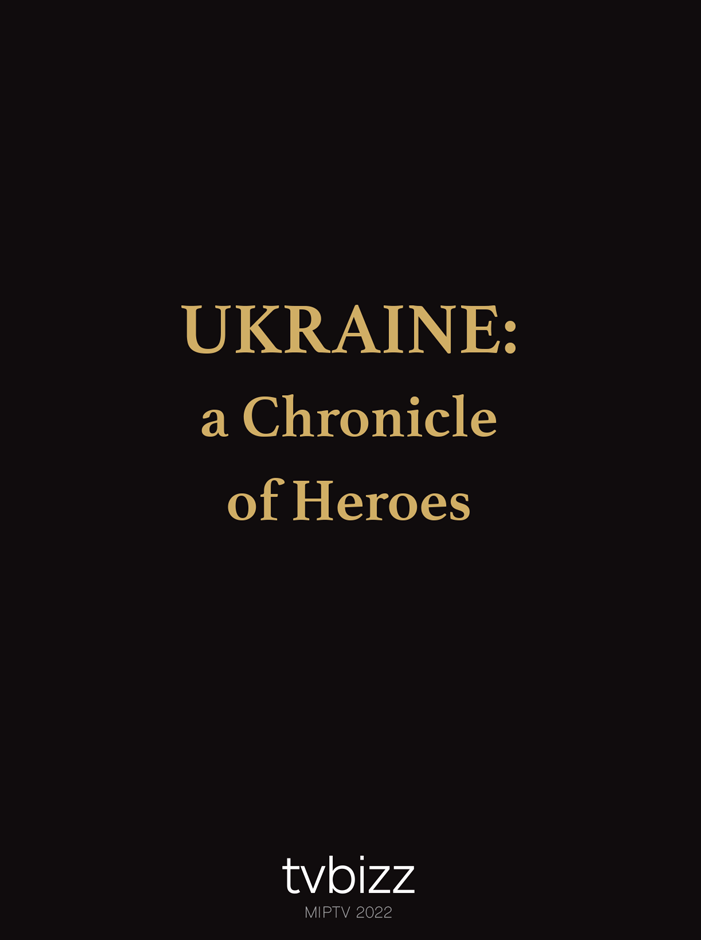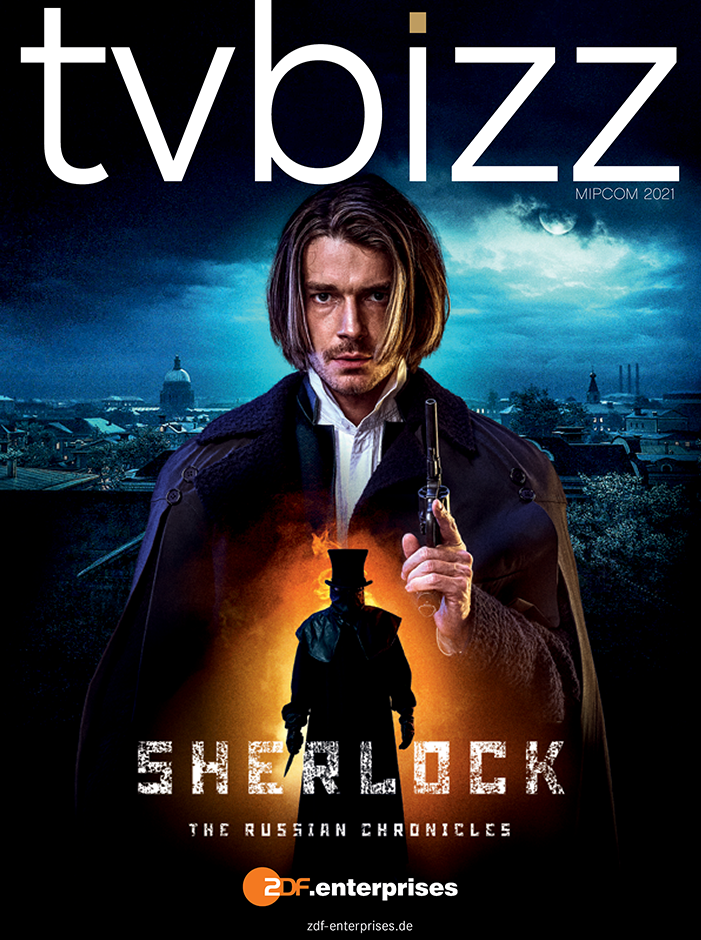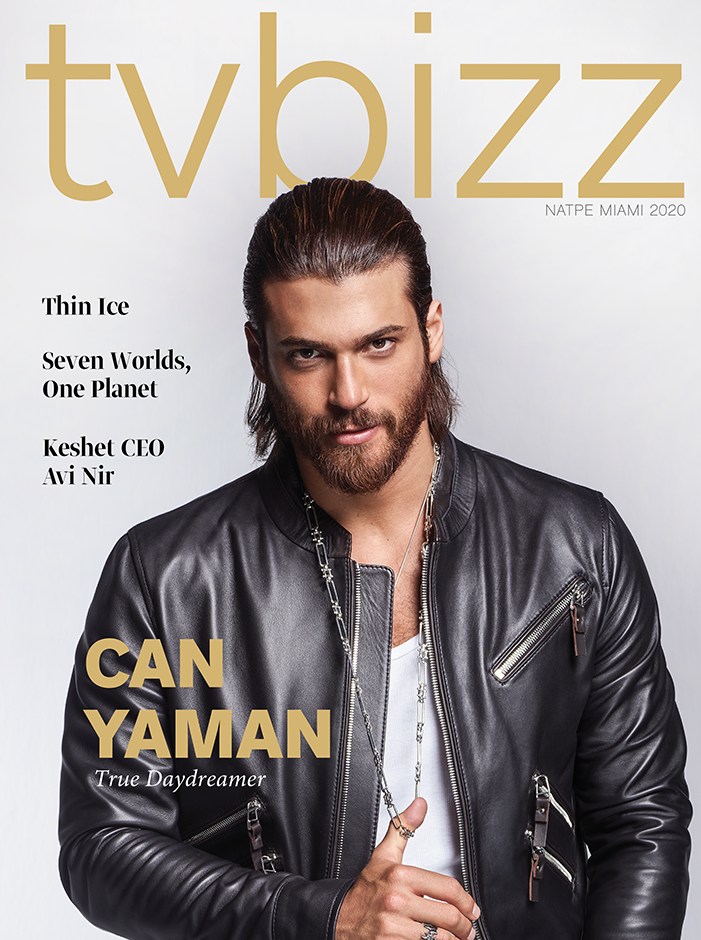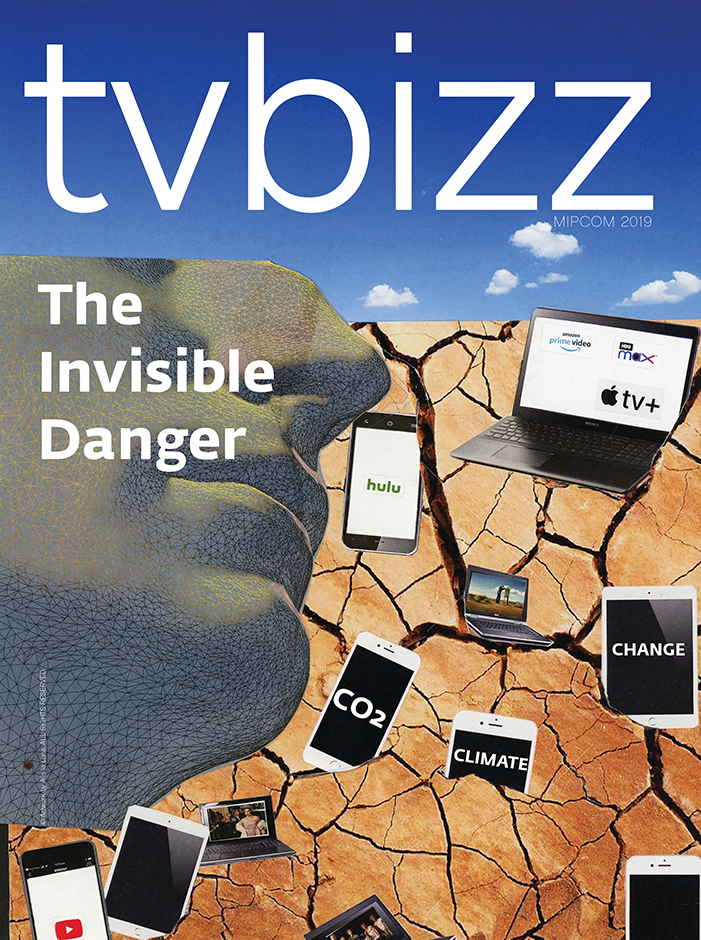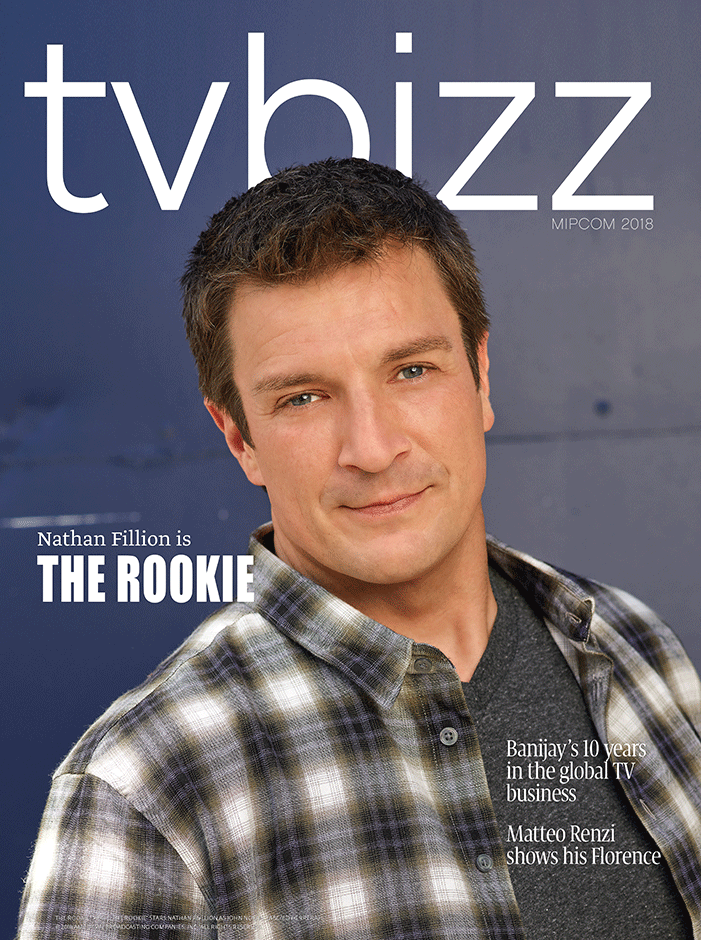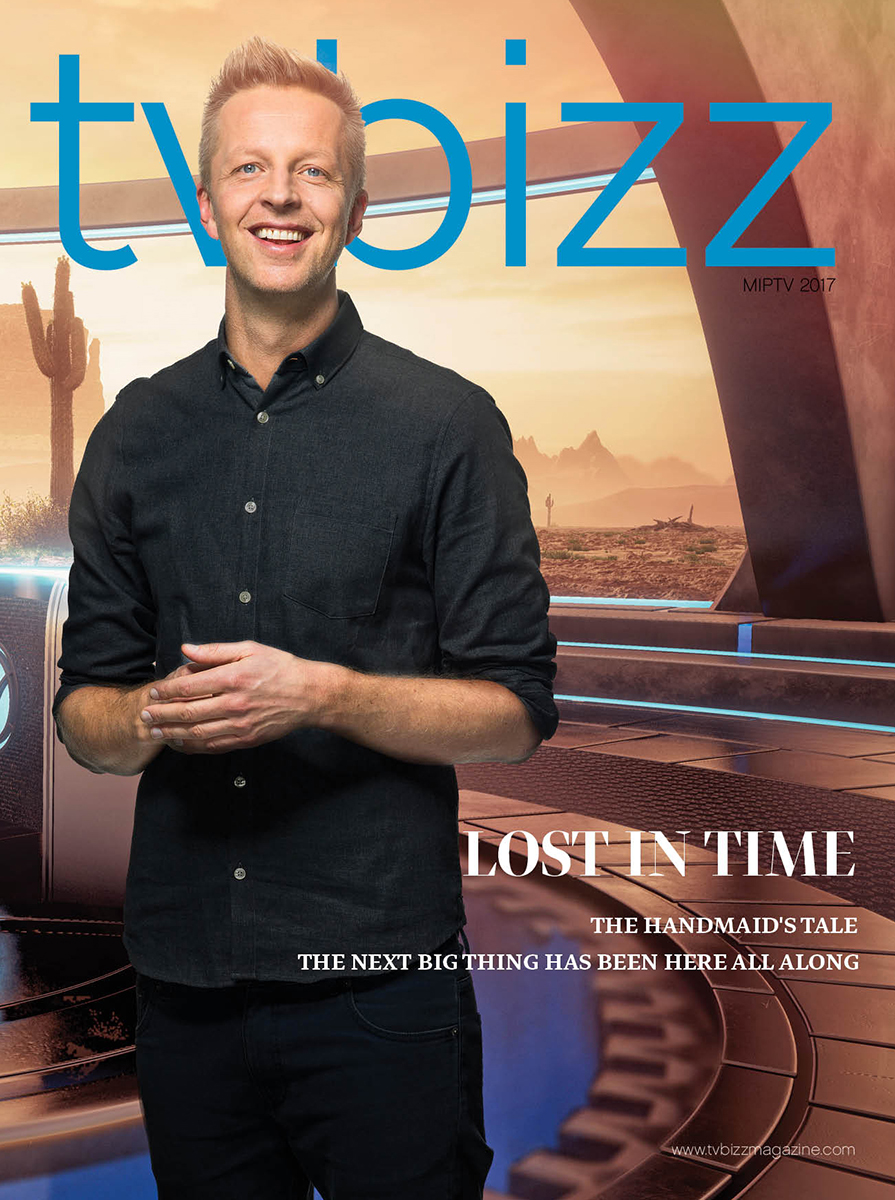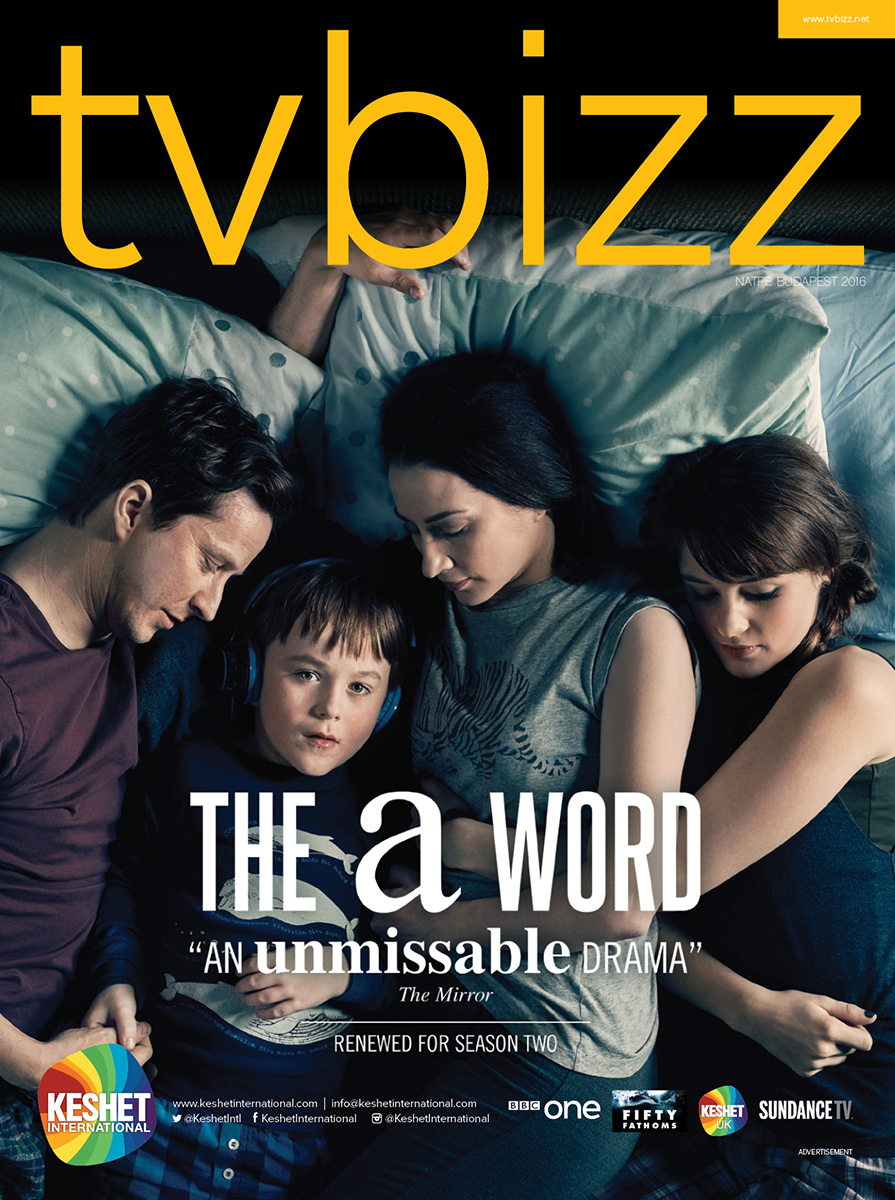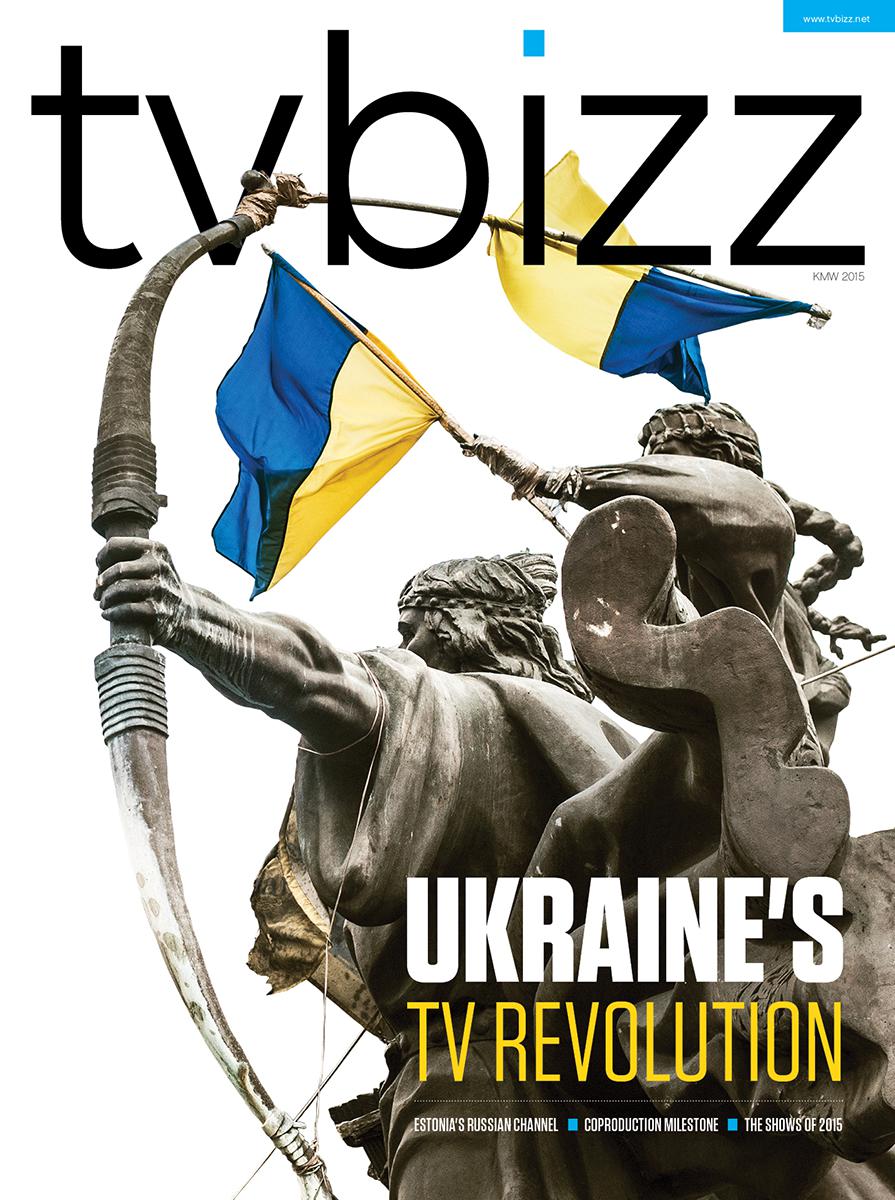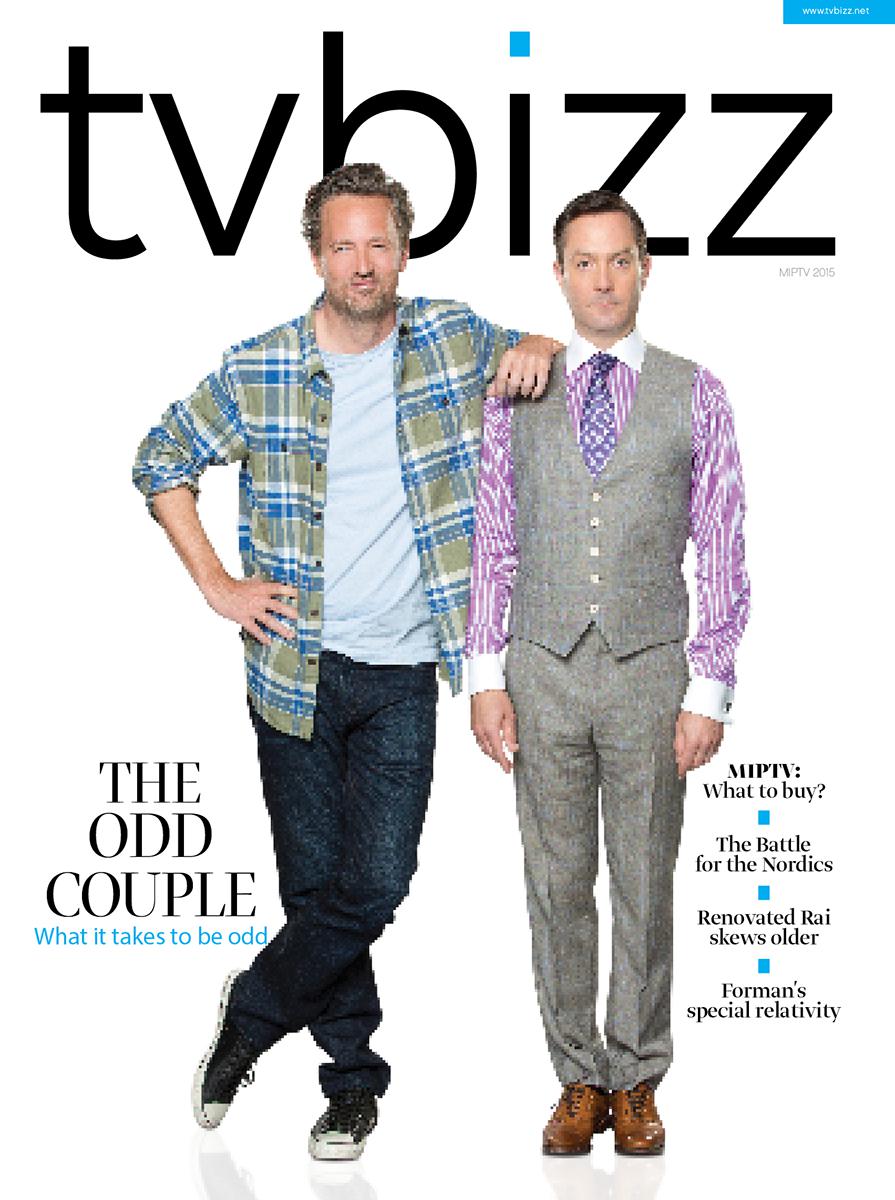Bavaria Fiction’s MD Marcus Ammon at the Monte-Carlo TV Festival
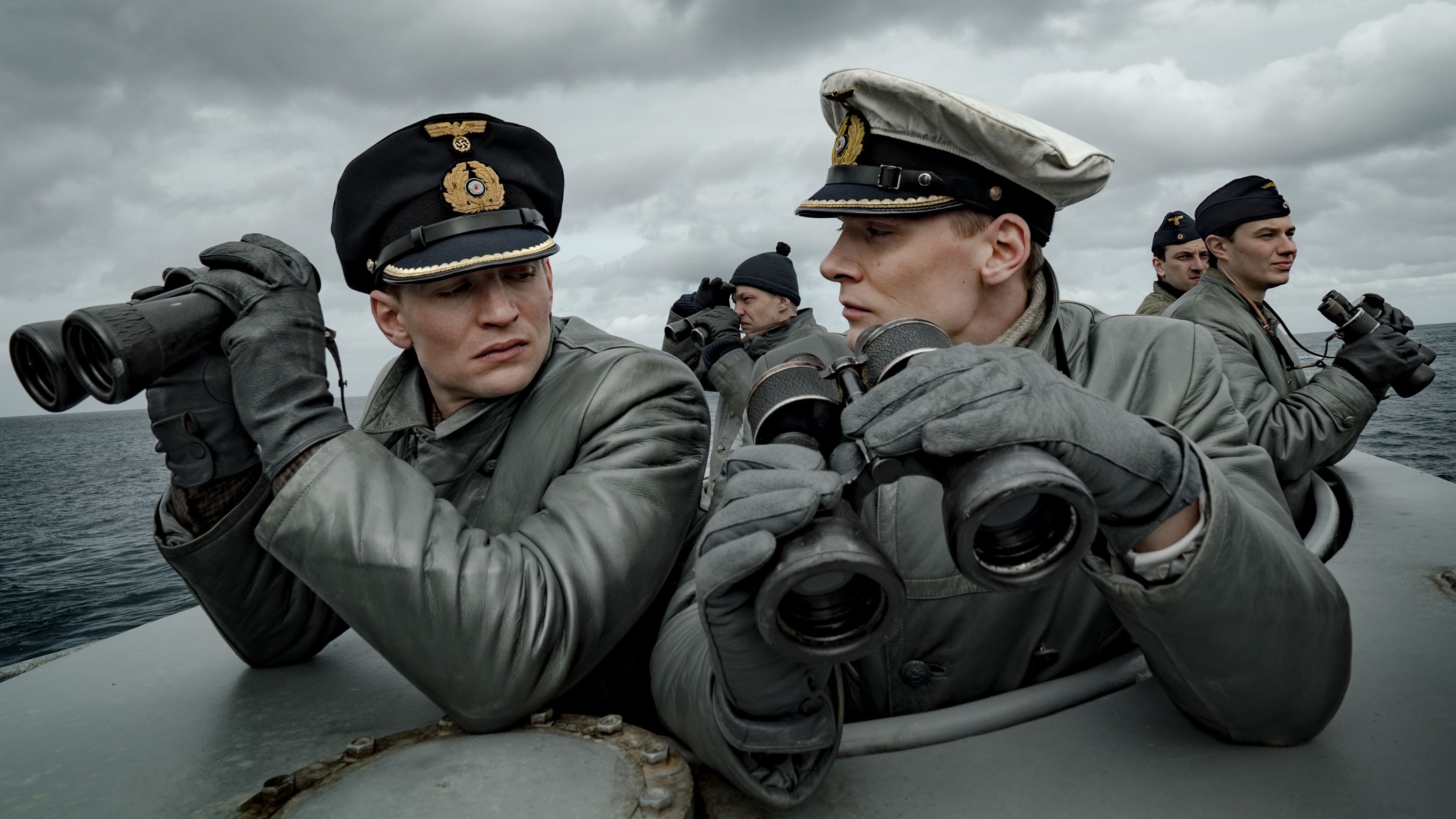
Das Boot
Marcus Ammon, the Managing Director of German prod co Bavaria Fiction, was part of the Jury Fiction at this year’s Monte-Carlo Television Festival. The media executive talked to journalists at the Festival, revealing details about the judging process, the state of play of the German and the international TV market, the recent trend of co-productions, Bavaria Fiction’s new documentary unit; etc.
Describing his experience as part of the Jury Fiction at the Festival, Ammon shared that “it was really fantastic because it was just like the selection of content - very diverse. There were commissioners, there were actors, of course, I was the only producer this year in the jury, but still it was a very good vibe. And we didn't have to argue. We didn't have to fight. There was a huge consensus. Also, the content that was shown was also very diverse - a show from Japan, also from Denmark, a Norway/German co-production, a show from the UK, from all over the world where they were bringing the shows together. Some were contemporary shows, others were period shows from the 50s, one from the 70s. So everything came together and it was good to see all this creative work from all over the world.”
Ammon also touched on the topic of international co-productions which have become the hot topic in recent times. The Bavaria Fiction chief noted that “the point is that especially high-end shows and series, but also movies become more and more expensive and the available money doesn't get more. So, first of all, it's a necessity that forces are joined. I would talk about co-production only if it makes sense. I would not artificially want to construct any form of co-production, but if it makes sense, and there's one show that was among the finalists, this German-Norwegian co-production is a good example because there were scenes that had to play, had to be set in Norway, others had to be set in Germany. So a co-production made absolute sense. And for us as producers, of course, it's a way to put together financing plans, maybe more complicatedly, but also in an efficient way in the end. And Bavaria, the company I represent, is very good at this full commissioning thing that you work for one partner and deliver the work in the end. But we don't have so much experience like others do in that field and this is something I want to pursue more and more.”
Ammon also revealed details about one of Bavaria Fiction’s major projects – Das Boot – “we will deliver season four to Sky soon. And we started discussions on a potential season five. So if that's going to happen, this is not clear and we would love to do another season, needless to say. And we hope that Sky would follow our ideas that we have, how could we again invent a new story that happens on this boat? Many stories have already been told in four seasons. But we think there is still a lot to tell and there is still some time until May '45 that can be told.”
When asked by TVBIZZ about the main differences between working for a broadcaster (from 2009 to 2021, Ammon worked for Sky Deutschland) and working for a prod co, the executive commented: ”when I started the job at Bavaria Fiction, another producer told me, Marcus, you're going to see selling is much harder than buying. And it turned out he was right. I enjoyed it a lot to commission content, meaning to receive ideas, to receive projects, pitches, to read them, to give feedback, and to select what makes most sense and what can be commissioned. Selling means also competing, of course, with others fighting for the best and learning to deal with disappointments, learning to deal with upside and rejections. And since I started, I realized that Bavaria fiction is very good in what they are doing, meaning producing for mainly the public broadcasters in Germany. But there's this huge field of streamers and of international and this was a field I wanted to get a step into and to develop. That meant that I started lots of development with writers. And in my team there are 12 producers who have fantastic relationships with writers, with the creative industry. And so we've been developing a lot of different projects set in different times, tailor made for different clients… Another quality you need as a producer is patience. It just takes time until a project gets to a point where you feel confident that it can be pitched. And now we are in a time, I think this golden era is over. The party is over. The streamers and the linear channels are getting more cost sensitive. Now it's getting even harder to sell projects and to get orders”.
In terms of choosing where to shoot and which companies to partner with, Ammon said that “Bavaria is looking for productions now in Croatia, in Poland. Das Boot, for example, is not completely, but it's mainly shot in the Czech Republic and Malta because of tax opportunities that you have there. However, co-productions I would rather do with, in the first instance, with partners from across Europe and these are the Scandis, and I admire a lot what they've been doing in the last couple of years, Italy, Spain, France, Eastern Europe most definitely, and we are observing what they've been doing. And if there are opportunities, yes, but it's a different question where to produce and which tax incentives to use. And of course, we take these opportunities that we mostly benefit from.”
As TVBIZZ reported, last year Bavaria Fiction announced the launch of a documentary unit called Bavaria Fiction Documentaries. Ammon gave an update on that at the Festival: “We hired a documentary producer last year - Emanuel Rothstein. He's a very experienced producer in documentaries, but he started from scratch at Bavaria Fiction because Bavaria fiction traditionally had no affinity or no layover with documentaries so far, as the name proposes. And Emanuel started from scratch but he was very quick in developing, similar to what we do in the fiction area, different ideas. We've sold one to Sky, meanwhile, a big documentary on a murder case that happened some 17 or 18 years ago in Munich, and that everyone, especially in Bavaria, but also in Germany, is familiar with: the so called Car Park Murder. It's a very interesting case since the nephew of the dead woman, of the killed woman was accused of murder. And he's been in prison now for 17 years. And he only was released two, three weeks ago. And we've been following him for six months or so very closely. It is a very interesting story. Of course, we won't take a stand of whether he's guilty or not. He always claimed not to be guilty. But the question is, will this case again go to court and get a new trial. And on top of that, Emanuel is in very close contacts with other potential partners and pretty far in selling or getting commission for another documentary. But I can't talk yet about the other stuff. Emanuel has his experiences in producing stuff and he is famous or the business knows him for a specific field of documentaries, which is history. He used to be the programming director of A&E, including the History Channel. So he did some documentaries for the History Channel. This is a field that he's very strong in - current politics, religion in total. We probably won't do in the near future a documentary on, let's say, sport idols. This is not his field of expertise. However, we hired a second person in this documentaries area who now works for Emanuel. She is very experienced in other fields of documentaries. She used to run her own company and decided now to join Bavaria Fiction and this will most likely also widen the area of potential topics.”
In terms of areas for growth – Bavaria Fiction’s MD commented that “…historically, our main clients are the public broadcasters in Germany and all the local subsidiaries. And as we know, they are all shifting budget from linear to what they call media tech, to their streaming service. And these streaming services that are owned by the public broadcasters are increasingly commissioning their own content. Whether or not it will also be on linear is a different question, but predominantly will be made for the non linear distribution, for the streaming service. The public broadcasters are very much aware that they need to approach new target groups, younger target groups with what they produce for their media taken. And this is why this is a field that is highly important for us. I would even assume, I would even compare it with what Netflix and Disney produce for their audiences”.
Ammon also outlined Bavaria Fiction’s international activities: “we produce one daily soap. It's called Sturm der Liebe, you know it very well. We've been doing that for 17 years, and it's highly successful in Italy - Tempesta D'Amore. It's successful in Austria. There is another Bavaria subsidiary - it's called Bavaria Media, and they are our distribution arm. So we have lots of discussions, of course, with Bavaria Media. If we have the chance to retain rights from our productions, we will most likely offer them to Bavaria Media or to ZDF Studios, which is another global distribution company that is attached to Bavaria Fiction through the shareholder structure. So whenever we have the opportunity to retain rights, we try to place them that they get a broad distribution.” Ammon also said public broadcasters in Germany are becoming more willing to let producers have international rights - “why? Because they are very stiff in their budgeting. So a TV movie, an average TV movie, has it set in stone budgets, just like a series has an episode and so on. But with raising costs on our end, it gets harder and harder to finance these shows. So we, as the producers, need to look for alternative ways how we can put the financing together. And this is why, of course, we go in discussions, in heavy discussions with the broadcasters, about what kind of rights they can leave with us in order to monetize them.”
Ammon added during the conversation with journalists that “there are funding opportunities in Germany as well. There is federal funding, the General Motion Picture fund, for example, plus the film fund. There are different ways of funding, for example, theatrical movies versus TV shows. But then on top of the federal funding opportunities, there are also local funding authorities in Bavaria, in North Rhine-Westphalia, in Baden-Württemberg, in Holstein, in Hesse. So partly refundable, partly not refundable, but there are different forms, different ways of funding content as opposed to tax models that you have, for example, in the Czech Republic or elsewhere.
As far as feature films are concerned, the executive said that “this is another question that we have been, we are still discussing internally. There used to be a subsidiary in the Bavaria world that was focusing on feature films for theatrical, and we did - I don't know if you've heard of a biopic called Enfant Terrible. That was a Bavaria production. The next one was from Bekenntnisse des Hochstaplers Felix Krull, that was a Bavaria film. And then Corona came and, and since those films didn't deliver what Weber was expecting from them, there was a decision that for a certain time we won't do theatrical. And when the cinemas are reopening again, what happened now, thank God, it is in our discretion, Bavaria Fiction, whether or not we want to do theatrical. And we have some movies now in development that can become a theatrical movie or it can also become a streamers movie. We haven't decided yet and we haven't pitched it yet. But the point is that we as Bavaria don't have a theatrical distribution company attached, like Constantine, for example, or Leonine. They all have their distribution arm in house. We need to find partners, and that makes things more complicated.
When asked about Bavaria Fiction’s growth strategy, Ammon commented: “of course, growth is always something we would want, we want to grow our business, but smartly, we don't want to go into any investment that we cannot oversee or that has certain risks that we are not able to tackle. And we have strategies in various areas. I told you about a couple of the theatrical co-productions. There are different things that we are carefully evaluating. But it is not a secret that Bavaria Fiction is half Bavaria Film owned, half ZDF owned. So we are in the hands of the public broadcasters, more or less, and that these parental companies are not famous for making the most risky decisions, let's put it that way…investments must be thought through very carefully.”
Describing his experience as part of the Jury Fiction at the Festival, Ammon shared that “it was really fantastic because it was just like the selection of content - very diverse. There were commissioners, there were actors, of course, I was the only producer this year in the jury, but still it was a very good vibe. And we didn't have to argue. We didn't have to fight. There was a huge consensus. Also, the content that was shown was also very diverse - a show from Japan, also from Denmark, a Norway/German co-production, a show from the UK, from all over the world where they were bringing the shows together. Some were contemporary shows, others were period shows from the 50s, one from the 70s. So everything came together and it was good to see all this creative work from all over the world.”
Ammon also touched on the topic of international co-productions which have become the hot topic in recent times. The Bavaria Fiction chief noted that “the point is that especially high-end shows and series, but also movies become more and more expensive and the available money doesn't get more. So, first of all, it's a necessity that forces are joined. I would talk about co-production only if it makes sense. I would not artificially want to construct any form of co-production, but if it makes sense, and there's one show that was among the finalists, this German-Norwegian co-production is a good example because there were scenes that had to play, had to be set in Norway, others had to be set in Germany. So a co-production made absolute sense. And for us as producers, of course, it's a way to put together financing plans, maybe more complicatedly, but also in an efficient way in the end. And Bavaria, the company I represent, is very good at this full commissioning thing that you work for one partner and deliver the work in the end. But we don't have so much experience like others do in that field and this is something I want to pursue more and more.”
Ammon also revealed details about one of Bavaria Fiction’s major projects – Das Boot – “we will deliver season four to Sky soon. And we started discussions on a potential season five. So if that's going to happen, this is not clear and we would love to do another season, needless to say. And we hope that Sky would follow our ideas that we have, how could we again invent a new story that happens on this boat? Many stories have already been told in four seasons. But we think there is still a lot to tell and there is still some time until May '45 that can be told.”
When asked by TVBIZZ about the main differences between working for a broadcaster (from 2009 to 2021, Ammon worked for Sky Deutschland) and working for a prod co, the executive commented: ”when I started the job at Bavaria Fiction, another producer told me, Marcus, you're going to see selling is much harder than buying. And it turned out he was right. I enjoyed it a lot to commission content, meaning to receive ideas, to receive projects, pitches, to read them, to give feedback, and to select what makes most sense and what can be commissioned. Selling means also competing, of course, with others fighting for the best and learning to deal with disappointments, learning to deal with upside and rejections. And since I started, I realized that Bavaria fiction is very good in what they are doing, meaning producing for mainly the public broadcasters in Germany. But there's this huge field of streamers and of international and this was a field I wanted to get a step into and to develop. That meant that I started lots of development with writers. And in my team there are 12 producers who have fantastic relationships with writers, with the creative industry. And so we've been developing a lot of different projects set in different times, tailor made for different clients… Another quality you need as a producer is patience. It just takes time until a project gets to a point where you feel confident that it can be pitched. And now we are in a time, I think this golden era is over. The party is over. The streamers and the linear channels are getting more cost sensitive. Now it's getting even harder to sell projects and to get orders”.
In terms of choosing where to shoot and which companies to partner with, Ammon said that “Bavaria is looking for productions now in Croatia, in Poland. Das Boot, for example, is not completely, but it's mainly shot in the Czech Republic and Malta because of tax opportunities that you have there. However, co-productions I would rather do with, in the first instance, with partners from across Europe and these are the Scandis, and I admire a lot what they've been doing in the last couple of years, Italy, Spain, France, Eastern Europe most definitely, and we are observing what they've been doing. And if there are opportunities, yes, but it's a different question where to produce and which tax incentives to use. And of course, we take these opportunities that we mostly benefit from.”
As TVBIZZ reported, last year Bavaria Fiction announced the launch of a documentary unit called Bavaria Fiction Documentaries. Ammon gave an update on that at the Festival: “We hired a documentary producer last year - Emanuel Rothstein. He's a very experienced producer in documentaries, but he started from scratch at Bavaria Fiction because Bavaria fiction traditionally had no affinity or no layover with documentaries so far, as the name proposes. And Emanuel started from scratch but he was very quick in developing, similar to what we do in the fiction area, different ideas. We've sold one to Sky, meanwhile, a big documentary on a murder case that happened some 17 or 18 years ago in Munich, and that everyone, especially in Bavaria, but also in Germany, is familiar with: the so called Car Park Murder. It's a very interesting case since the nephew of the dead woman, of the killed woman was accused of murder. And he's been in prison now for 17 years. And he only was released two, three weeks ago. And we've been following him for six months or so very closely. It is a very interesting story. Of course, we won't take a stand of whether he's guilty or not. He always claimed not to be guilty. But the question is, will this case again go to court and get a new trial. And on top of that, Emanuel is in very close contacts with other potential partners and pretty far in selling or getting commission for another documentary. But I can't talk yet about the other stuff. Emanuel has his experiences in producing stuff and he is famous or the business knows him for a specific field of documentaries, which is history. He used to be the programming director of A&E, including the History Channel. So he did some documentaries for the History Channel. This is a field that he's very strong in - current politics, religion in total. We probably won't do in the near future a documentary on, let's say, sport idols. This is not his field of expertise. However, we hired a second person in this documentaries area who now works for Emanuel. She is very experienced in other fields of documentaries. She used to run her own company and decided now to join Bavaria Fiction and this will most likely also widen the area of potential topics.”
In terms of areas for growth – Bavaria Fiction’s MD commented that “…historically, our main clients are the public broadcasters in Germany and all the local subsidiaries. And as we know, they are all shifting budget from linear to what they call media tech, to their streaming service. And these streaming services that are owned by the public broadcasters are increasingly commissioning their own content. Whether or not it will also be on linear is a different question, but predominantly will be made for the non linear distribution, for the streaming service. The public broadcasters are very much aware that they need to approach new target groups, younger target groups with what they produce for their media taken. And this is why this is a field that is highly important for us. I would even assume, I would even compare it with what Netflix and Disney produce for their audiences”.
Ammon also outlined Bavaria Fiction’s international activities: “we produce one daily soap. It's called Sturm der Liebe, you know it very well. We've been doing that for 17 years, and it's highly successful in Italy - Tempesta D'Amore. It's successful in Austria. There is another Bavaria subsidiary - it's called Bavaria Media, and they are our distribution arm. So we have lots of discussions, of course, with Bavaria Media. If we have the chance to retain rights from our productions, we will most likely offer them to Bavaria Media or to ZDF Studios, which is another global distribution company that is attached to Bavaria Fiction through the shareholder structure. So whenever we have the opportunity to retain rights, we try to place them that they get a broad distribution.” Ammon also said public broadcasters in Germany are becoming more willing to let producers have international rights - “why? Because they are very stiff in their budgeting. So a TV movie, an average TV movie, has it set in stone budgets, just like a series has an episode and so on. But with raising costs on our end, it gets harder and harder to finance these shows. So we, as the producers, need to look for alternative ways how we can put the financing together. And this is why, of course, we go in discussions, in heavy discussions with the broadcasters, about what kind of rights they can leave with us in order to monetize them.”
Ammon added during the conversation with journalists that “there are funding opportunities in Germany as well. There is federal funding, the General Motion Picture fund, for example, plus the film fund. There are different ways of funding, for example, theatrical movies versus TV shows. But then on top of the federal funding opportunities, there are also local funding authorities in Bavaria, in North Rhine-Westphalia, in Baden-Württemberg, in Holstein, in Hesse. So partly refundable, partly not refundable, but there are different forms, different ways of funding content as opposed to tax models that you have, for example, in the Czech Republic or elsewhere.
As far as feature films are concerned, the executive said that “this is another question that we have been, we are still discussing internally. There used to be a subsidiary in the Bavaria world that was focusing on feature films for theatrical, and we did - I don't know if you've heard of a biopic called Enfant Terrible. That was a Bavaria production. The next one was from Bekenntnisse des Hochstaplers Felix Krull, that was a Bavaria film. And then Corona came and, and since those films didn't deliver what Weber was expecting from them, there was a decision that for a certain time we won't do theatrical. And when the cinemas are reopening again, what happened now, thank God, it is in our discretion, Bavaria Fiction, whether or not we want to do theatrical. And we have some movies now in development that can become a theatrical movie or it can also become a streamers movie. We haven't decided yet and we haven't pitched it yet. But the point is that we as Bavaria don't have a theatrical distribution company attached, like Constantine, for example, or Leonine. They all have their distribution arm in house. We need to find partners, and that makes things more complicated.
When asked about Bavaria Fiction’s growth strategy, Ammon commented: “of course, growth is always something we would want, we want to grow our business, but smartly, we don't want to go into any investment that we cannot oversee or that has certain risks that we are not able to tackle. And we have strategies in various areas. I told you about a couple of the theatrical co-productions. There are different things that we are carefully evaluating. But it is not a secret that Bavaria Fiction is half Bavaria Film owned, half ZDF owned. So we are in the hands of the public broadcasters, more or less, and that these parental companies are not famous for making the most risky decisions, let's put it that way…investments must be thought through very carefully.”
